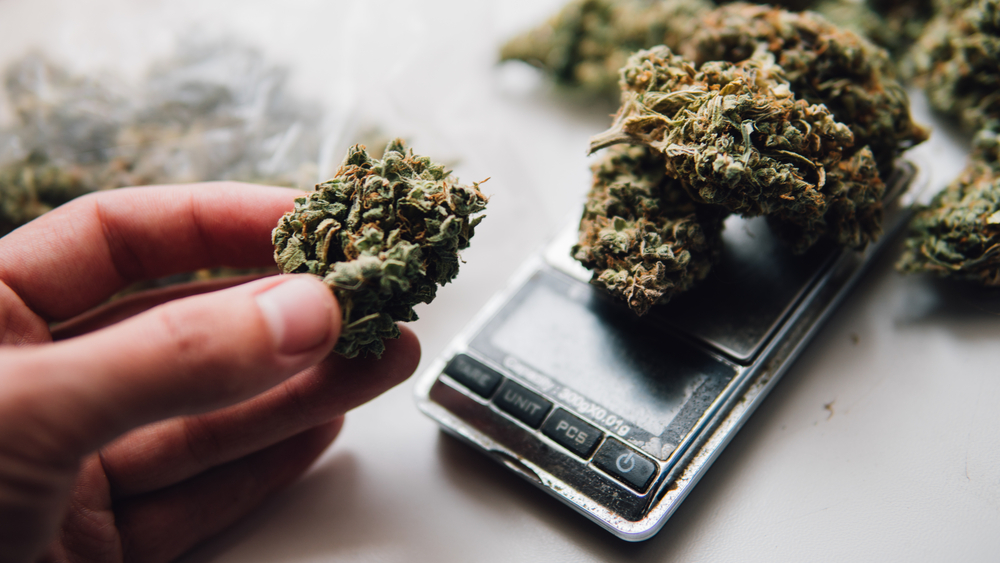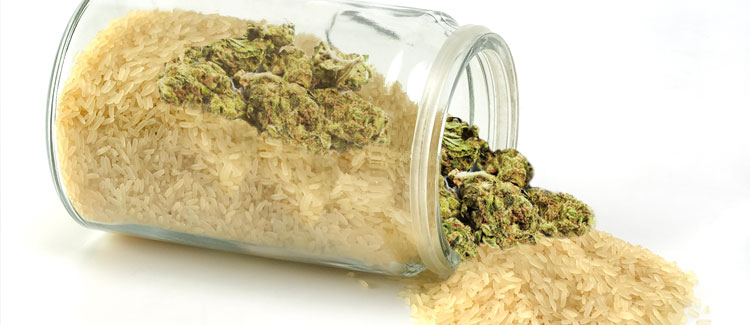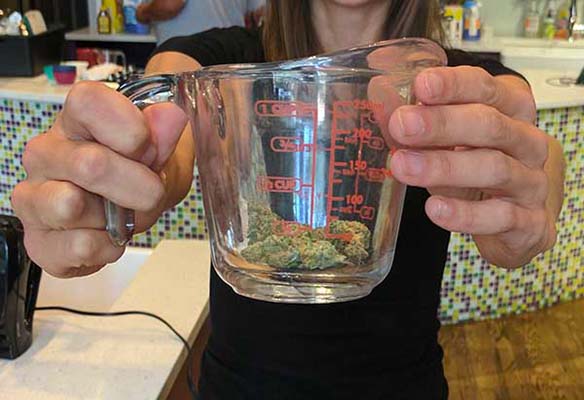Now that weed has been deemed socially acceptable by pop culture and society at large, celebrity involvement in the cannabis industry is at an all time high. As this burgeoning new market continues to evolve, serious ventures from passionate celebrity stoners are beginning to eclipse brands or collabs where a celebrity (who may not even smoke) simply slaps their name on a preexisting strain and calls it a day.
Currently, here are the ways celebrities are involving themselves in the cannabis industry. From celebrity-owned canna-brands to celeb-branded weed products, check out the current state of this sparkly new intersection where weed meets the stars.
Tommy Chong’s Cannabis
One of a few weed endeavours the world’s first cannabis celebrity is currently working on, Tommy Chong’s Cannabis (formerly Chong’s Choice) features products like sublingual THC strips, CBD energy shots, sleep tinctures and more. His products are available in all legal states, and the brand is in the middle of an expansion, so stay tuned for new — and smokable — products to come.
22Red by Shavo Odadjian of System of a Down
22Red produces the hottest fire of any celebrity weed brand I’ve ever encountered, due to the fact that the celebrity in question, Shavo Odadjian of System of a Down, cares more about the weed itself than selling it through his image.
Currently available in eighths of flower, prerolls, carts and disposable vapes, 22Red has plans to expand into more strains with rare genetics.
“It’s just crazy,” said Odadjian. “The stuff we’re coming up with lately. We’ve been hunting privately for genetics and strains, and keeping the best ones, bringing them into our growth and seeing what happens. We’re just about to have a new batch of stuff, and I’m really looking forward to sharing it with the world.”
Forbidden Flowers by Bella Thorne and Glass House Farms
Forbidden Flowers, a new brand consisting of Bella Thorne approved strains from Glass House Farms, is as glittery, girly, and seductive as the Gen Z icon herself. For those of you who are old (like myself), Bella Thorne is an outspoken stoner, popstar, actress, and all around social media star who recently made headlines for making $2,000,000 in two days off her OnlyFans account.
In collaboration with Santa Barabara cannabis brand Glass House Farms, Forbidden Flower strains come in Indica, Sativa, Hybrid in eighths of flower and prerolls. With colored rolling papers and gradient toned glass jars with big glitter lids, the branding is, well, on brand. The flower itself is impressive, too. I tried both the sativa and hybrid varieties, and they were excellent, smoking even better than they looked.
JAY-Z: Chief Brand Strategist at Caliva
Caliva, a popular California cannabis brand complete with its own dispensaries, delivery services, and a multitude of house brands, entered a multi-year partnership in 2019 with none other than rap mogul demi-god Jay-Z.
Dennis O’Malley, CEO of Caliva, told Weedmaps, “We were thrilled to bring Mr. Shawn ‘JAY-Z’ Carter on board last year as Caliva’s Chief Brand Strategist. Mr. Carter has been very generous with his time since joining the company and his input has been incredibly valuable. We are excited to be able to reveal some of the projects that we’ve been working on over the course of the next few months.”
Viola by Al Harrington
NBA legend Al Harrington has moved his passion from the basketball court to the weed world with Viola, his social equity minded, proudly Black cannabis brand. In addition to producing high-quality flower, vapes, and extracts, Viola’s mission is focused on empowering others.
Not only does Viola empower minority ownership in the brand by creating a coalition of minority investors who own and operate Viola, they’ve created social equity programs to help cannabis entrepreneurs get into the industry. To date, they’ve committed over 500k to partner with six applicants through Phase 1, as well as 20 applicants through Phase 2 of their Social Equity Program in Los Angeles.
Marley Natural
Celebrity involvement in the cannabis industry can even be posthumous. Such is the case with Marley Natural, the official cannabis brand for the god of weed himself, Bob Marley.
Marley Natural is a product line that includes flower, topicals, and smoking accessories. According to their website, products “offer a direct reflection of the Marley ethos that integrates nature’s goodness with a belief in the positive potential of herb.”
In addition to super nice flower —their uber whimsical Sundae Driver strain is particularly fun — they also have a charity arm called Rise Up, which works to enact positive change in social and environmental issues.
Cookies Collaborations with Rick Ross, Run the Jewels, and Gary Payton
Bay area rapper Berner, whose megabrand Cookies runs the hype-beast corner of cannabis, is without a doubt the most successful rap/weed crossover mogul of all time. In addition to being a massive cannabis celebrity in his own right, he’s made a fortune off collaborations with his friends in the sports and entertainment industry.
Recent notables include Collins Ave, a brand in collaboration with Rick Ross, Ooh La La, a strain released with Run the Jewels, and the now iconic Gary Payton strain, a collab with, who else, NBA icon Gary Payton.
Mind Your Head by Mickey Hart
Attention Dead Heads and Lot Freaks: Mickey Hart has a weed brand.
In a move that excites but does not surprise, Micky Hart, a legendary drummer for the Grateful Dead, has launched Mind Your Head, a cannabis brand specializing in two kinds of prerolls: Magic Minis and Space Tickets.
The Magic Minis stand out as the packaging and branding are both particularly cool. The psychedelic engraved tin full of ten super small, super potent Chem Dawg mini joints is tough to beat.
Tyson Ranch
Mike Tyson has come a long way from his beginnings in the ring with an ultimately successful journey that culminated in 2016 when he launched Tyson Holistic Holdings, a parent brand that sells weed merch, Tyson Ranch branded cannabis products, and was recently on track to open a 420 acre marijuana playground in the California Desert under the Tyson Ranch name.
Plans include a luxury hotel, weed attractions, and an amphitheater for music festivals, along with a slew of other wildly exorbitant features, like a lazy river that will supposedly take over an hour to cross. Another sort of bizarre twist to the story, Tyson Ranch doesn’t grow their own flower, and has no plans to ever grow weed on its premises. But hey, that’s the celebrity weed world for you.
Featured image: Shutterstock/Weedmaps illustration
The post Celebrity weed brands worth trying appeared first on Weedmaps News.




